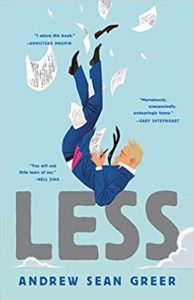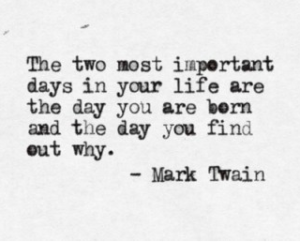So I was just talking with a young colleague I hadn’t seen over the summer. He’s hipster handsome and slim, has the regulation black-framed glasses, and rocks what I like to think of as a “Brooklyn Beard”: thick, dark, lustrous, well-tended but not fussy. A low-key statement beard.
That beard of his looked way more luxuriant than the last time I’d seen it (and him) when our paths crossed at the gym. You know the kind of beard I mean. Some people love ‘em, some hate ‘em.
“Your beard is a work of art,” I said. “It deserves a name.” That part was a joke, but I was seriously fan-bearding him.
“It has a name,” he said. “I call it ‘Red.’ ”
“Really?”
“Actually, I just named it right now.”
We both laughed because it was coal-black, but the name fit because of the quiet incongruity. I could already imagine people referring to him as “You know, that guy with the black beard he calls ‘Red.’ ”
I was inspired by his irony. In the same spirit, right then and there I christened my beard “Erik” after the Norwegian Viking, Erik the Red. I think that was already making my colleague and me beard bros.
Now, my beard isn’t as lush as his, and it’s got various colors shot through with red like my Dad’s, rather than one solid hue. And the reason for the name was multi-layered as well. It dated back to all my travels in Germany and elsewhere in Western Europe where people often took me for Norwegian because of my coloring—and the beard. And because if they heard me speak German, French, or Dutch they couldn’t tell where I was from, but they never thought my accent was American. Now and then someone outside Germany might ask if I was German, but everywhere the predominant guess was Norwegian.
Even a Norwegian once asked where I was from in his country, and likewise a Swede sitting next to me on a flight back from Berlin told he was surprised when I asked him a question in English. He, too, thought I was Norwegian. Being mistaken for Norwegian has happened to me on a regular basis when I’ve been over there. Sadly, I’ve never had the chance to learn any Norwegian, just tourist Swedish (which a friend with Swedish relatives said is surprisingly good). Because I would have loved to fake it, just for a little while.
“You know, we need a web site,” I said to my beard bud. “For guys who name their beards.”
He nodded. “Too right.”
“Because we can’t be the only ones.” I hesitated. “But what do we call it?”
He considered. “How about ‘Guys Who Name Their Beards’?”
“Too literal. Maybe ‘Dudes With Beard Names’?”
“Yes! Uh, no. It sounds—”
“—yeah, it sounds like they have a problem and need therapy, or a talk show.”
We both fell silent, and then he smiled: “Let’s go with ‘Our Beards, Ourselves.’ ”
Lev Raphael is the author of 25 books in genres from memoir to mystery.













